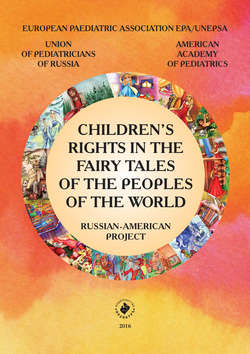Читать книгу Children’s rights in the fairy tales of the peoples of the world. Russian-American project - Коллектив авторов - Страница 13
На сайте Литреса книга снята с продажи.
Part I
Hans Christian Andersen. The Emperor's New Clothes
ОглавлениеOnce upon a time there was an emperor, who liked new clothes very much. He had a new dress every two days. The emperor dreamt of sewing a dress that would fit like a glove so that nobody would have the same dress.
One day two tricksters came to the town. They found out about the emperor's wish, introduced themselves as weavers and said that they could weave such a perfect cloth, that it would be impossible to imagine anything better. And this cloth had a wonderful quality – it was invisible for those people who were foolish or who were occupying the wrong place in life.
The emperor liked this offer and he decided to have a dress made of this cloth. He gave a lot of money to the tricksters and asked them to start their work as fast as possible. They pretended that they were weaving and then told everybody that they were sewing. The ministers and the court were all afraid of looking foolish or occupying the wrong place in life. They told the emperor that they had seen the beautiful cloth with their own eyes and that they liked it very much.
Finally the day came, when the tricksters said that the new clothes for the emperor were ready. They pretended that they put it on the emperor and complimented it for its pattern and cut. The court admired the dress all together although they could see nothing. This way the emperor went out to the public wearing just underclothes. Nobody wanted to admit that they saw nothing.
During the emperor's procession only one child exclaimed: 'Look, he is naked! And everybody heard the boy.
The adults understood that he was right. Only the innocent child could open everybody's eyes to the trick.
Article 14. States Parties shall respect the right of the child to freedom of thought, conscience and religion. States Parties shall respect the rights and duties of the parents and, when applicable, legal guardians, to provide direction to the child in the exercise of his or her right in a manner consistent with the evolving capacities of the child. Freedom to manifest one's religion or beliefs may be subject only to such limitations as are prescribed by law and are necessary to protect public safety, order, health or morals, or the fundamental rights and freedoms of others.
THE CHILD HAS THE RIGHT TO FREEDOM OF THOUGHT AND RELIGION
